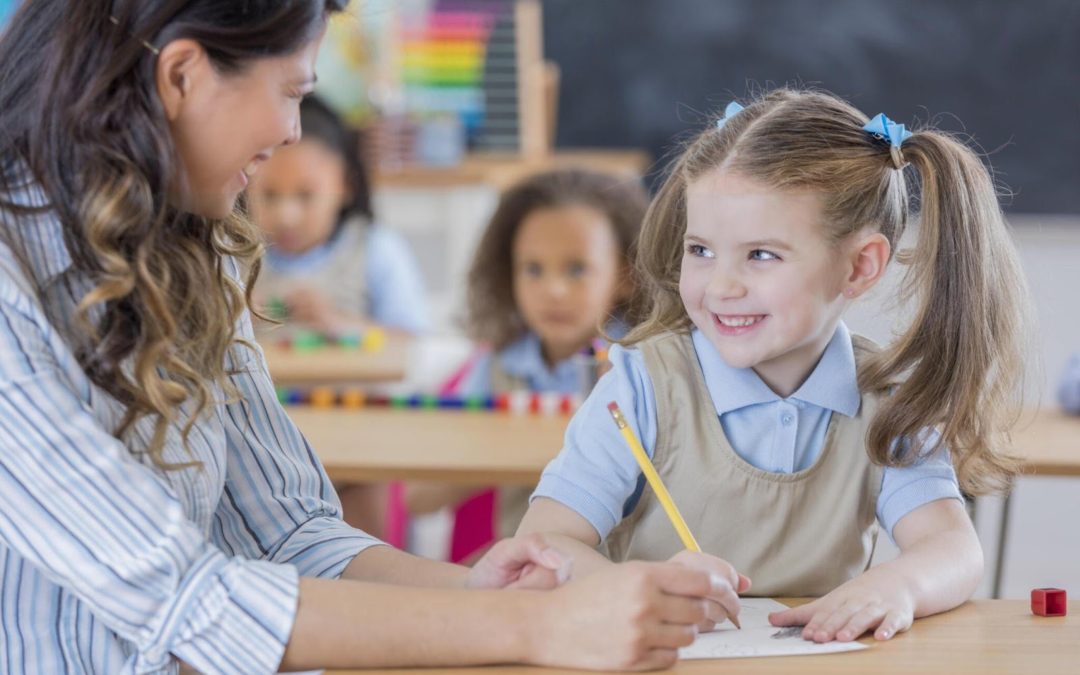In the ever-evolving landscape of education, parents strive to provide their children with the best possible foundation for their future. In Phoenix, the realm of daycares and early education has seen a surge in the Montessori approach, a method that goes beyond conventional teaching paradigms.
What sets these Montessori daycares apart, particularly those embracing bilingualism like Spanish immersion elementary schools, lies in their innovative approach and commitment to holistic development.
The Montessori Approach: Empowering Critical Thinking and Collaboration
At the heart of the Montessori philosophy lies a commitment to fostering critical thinking and collaborative skills in children. Unlike traditional educational models, Montessori education empowers students to think independently and engage in collaborative learning experiences.
The emphasis is not merely on rote memorization but on developing a deep understanding of concepts.
Bilingualism as a Gateway to Global Communication
In a world where diversity and globalization shape our interactions, proficiency in multiple languages has emerged as a pivotal skill. Spanish immersion elementary schools within the Montessori framework recognize this need for linguistic diversity.
By incorporating Spanish, Mandarin, and English into their curriculum, these schools equip children with the tools to communicate effectively in the three most spoken languages globally.
The Power of Multilingualism
Research has shown that multilingual individuals possess cognitive advantages, including enhanced problem-solving skills and greater cultural awareness. By introducing children to multiple languages during their formative years, Montessori daycares in Phoenix aim to give them a unique advantage in an increasingly interconnected world.
Montessori Language Programs: A Unique Offering
In Phoenix, Montessori Language Immersion programs stand out as a rare and valuable opportunity for young learners. These programs cater to toddlers as young as 2 years old, providing an immersive learning experience in Spanish and Mandarin.
Led by trained Montessori teachers fluent in these languages, the program ensures a nurturing environment conducive to language acquisition and overall development.
Distinctive Features of Montessori Preschools
Montessori preschools are characterized by their child-directed approach, allowing children to choose their activities and work at their own pace.
This autonomy fosters a sense of responsibility and independence in young learners. Moreover, the classrooms are designed to encourage movement, collaboration, and hands-on learning experiences through a plethora of engaging materials.
Concrete Learning for Holistic Development
A distinguishing aspect of Montessori education is the emphasis on concrete learning materials. These materials, including manipulatives and self-correcting puzzles, facilitate a deeper understanding of abstract concepts.
By engaging in tactile, hands-on activities, children develop a strong foundation in various subjects while honing their problem-solving abilities.
Choosing the Path of Montessori Education
For parents seeking a holistic, language-rich educational experience for their children, Montessori daycares in Phoenix stand as an excellent choice.
The combination of child-directed learning, bilingual immersion programs, and a focus on holistic development makes these institutions a gateway to a well-rounded education.
Exploring Montessori Options in Phoenix
Among the array of Montessori daycares in Phoenix, one notable institution stands out for its commitment to bilingualism and holistic learning: Bebe Amigos Montessori.
This establishment offers a comprehensive Montessori program enriched with Spanish and Mandarin immersion, providing a unique platform for children to thrive academically and linguistically.
Creating an Enriching Environment: The Montessori Classroom
One of the defining features of Montessori daycares is the carefully curated learning environment. These classrooms are meticulously designed to facilitate exploration, creativity, and independence.
Within this space, children encounter a rich array of educational materials strategically arranged on low shelves, inviting them to engage in various activities.
The classroom setup encourages children to move freely, fostering a sense of ownership and responsibility for their learning journey. Children explore concepts at their own pace, whether it’s mathematics, language, or practical life skills.
This freedom allows for personalized learning experiences, catering to individual interests and learning styles.
The Role of Parental Involvement
Montessori daycares in Phoenix actively encourage parental involvement, recognizing the vital role parents play in a child’s educational journey.
Parents are often seen as partners in their children’s education, and these institutions strive to establish open lines of communication between educators and families.
Workshops, seminars, and regular communication channels are established to keep parents informed about their child’s progress and the Montessori philosophy.
This involvement creates a supportive ecosystem where parents can reinforce classroom learning at home, aligning their efforts with the principles practiced at the daycare.
The Impact Beyond Early Education
Beyond the foundational years, the impact of a Montessori education extends into the child’s future. The emphasis on self-directed learning, problem-solving skills, and cultural awareness instilled during these formative years becomes an integral part of the child’s personality.
Students who have experienced Montessori education often exhibit adaptability, strong leadership qualities, and a profound sense of empathy. These attributes become essential assets as they transition into higher education and eventually, the professional world, where adaptability and critical thinking are highly valued.
The Importance of Continuous Learning and Adaptation
Montessori daycares in Phoenix, committed to staying at the forefront of education, understand the significance of continuous learning and adaptation.
They regularly incorporate the latest research and educational methodologies into their curriculum, ensuring that children receive a dynamic and relevant educational experience.
By embracing innovation while staying true to the foundational principles of the Montessori method, these institutions equip children with the skills necessary to thrive in an ever-evolving landscape.
In essence, Montessori daycares in Phoenix are not merely educational institutions; they are nurturing environments that foster intellectual curiosity, multilingual proficiency, and holistic development.
Through a child-centered approach, a commitment to parental involvement, and a focus on adaptability, these institutions pave the way for a generation of confident, empathetic, and globally aware individuals, poised to make meaningful contributions to society.
Conclusion
In conclusion, the Montessori approach, especially when intertwined with bilingual immersion programs, presents an unparalleled opportunity for children’s development in Phoenix.
By nurturing critical thinking, fostering multilingualism, and prioritizing holistic growth, these daycares pave the way for a future generation equipped to navigate an increasingly diverse and interconnected world.

